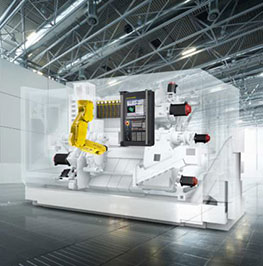

sep . 03, 2024 22:13 Back to list
The Importance of Steel Recycling Plants in Sustainable Development
Steel is one of the most widely used materials in the world, playing a critical role in various industries, including construction, automotive, and manufacturing. However, the production of steel is resource-intensive and has significant environmental impacts. This is where steel recycling plants come into play, providing a crucial solution to reduce waste and promote sustainability.
Steel recycling involves the process of recovering scrap steel from old products and reprocessing it into new steel. Steel is unique among materials because it can be recycled multiple times without losing its quality. This characteristic makes steel recycling a vital part of the circular economy, where materials are reused and repurposed to minimize waste.
Steel recycling plants operate by collecting scrap metal from various sources, including construction sites, automotive industries, and household appliances. Once collected, the scrap steel is sorted, cleaned, and processed. The process typically involves shredding the metal into smaller pieces, removing impurities such as plastics and non-metallic materials, and melting the shredded metal in large furnaces. This molten steel can then be cast into new products, from beams and sheets to rebar and pipelines.

One of the most significant benefits of steel recycling plants is the reduction of resource consumption and energy use. The production of steel from virgin materials is energy-intensive, requiring substantial amounts of coal, iron ore, and limestone. In contrast, recycling steel significantly lowers energy consumption—up to 74% less energy is required to produce steel from recycled materials. This reduction in energy use not only conserves natural resources but also decreases greenhouse gas emissions, making steel recycling an essential strategy for combating climate change.
Moreover, steel recycling contributes to economic growth and job creation. Recycling plants provide direct employment opportunities while supporting ancillary industries involved in collection, transportation, and processing. According to the Bureau of International Recycling, the recycling sector plays a vital role in the economy, generating billions of dollars and creating millions of jobs globally. With the continuous rise in demand for sustainable practices, investments in steel recycling plants are likely to grow, further enhancing economic potential.
Steel recycling is not just about environmental and economic benefits; it also instills a sense of responsibility within communities. The public's awareness of the need for recycling has increased over the years, leading to a greater acceptance of recycling practices. Educational programs and initiatives focused on recycling have empowered individuals and organizations to participate actively in sustainability efforts. By promoting steel recycling, communities can contribute to reducing landfill waste and conserving natural resources for future generations.
In conclusion, steel recycling plants are pivotal in fostering sustainable development. By converting waste into valuable resources, they help reduce the environmental footprint of steel production, save energy, and create jobs. As the world continues to grapple with environmental challenges, the role of steel recycling will only become more crucial. Therefore, investing in recycling infrastructure and promoting steel recycling practices are essential steps toward a more sustainable and responsible future.
Latest news
Troubleshooting Common Eddy Separator Problems
NewsJul.04,2025
The Role of Metal Recycling Plants in Circular Economy
NewsJul.04,2025
The Impact of Recycling Line Pickers on Waste Management Costs
NewsJul.04,2025
Safety Features Every Metal Shredder Should Have
NewsJul.04,2025
How Industrial Shredders Improve Waste Management Systems
NewsJul.04,2025
How Cable Granulators Contribute to Sustainable Recycling
NewsJul.04,2025